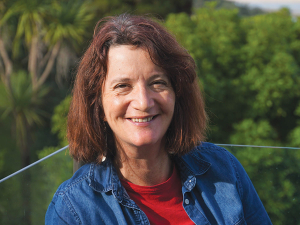With the beginning of the new year and the end of the government recess, Rural Health Network is calling on the coalition Government to keep its promises on investment into ailing rural general practices.
Chair of Rural Health Network Dr Fiona Bolden says that despite providing essential services and preventative care to patients, rural general practices are under-resourced, over-stretched and under-staffed.
"Historically, many rural services have offered 24/7 care because there are no other options. It's a real concern seeing the provision of 24/7 care changing because when the practice is closed the only option for that person is to travel many hours to get to a hospital if they're even able to do that."
A 2022 Sapere report on general practice funding found that the current funding mechanisms for primary health care are inequitable. Hauora Taiwhenua says that implementing the recommendations found in the report, such as an analysis of afterhours care and a renewed model of funding, would enable general practices to provide more comprehensive and integrated care for their communities, keeping them from hospital admissions and the associated costs in many instances.
With approximately one million people in New Zealand reporting that it takes too long to access timely and affordable primary care, and 5000 nurses lost to Australia in 2023, Bolden says that immediate investment and support in primary care - as promised during the election by National and ACT - is the best way to improve health outcomes and reduce health inequities for all New Zealanders.
"Sixty per cent of rural practices are advertising for one or more doctors, with some having been unsuccessful after advertising for more than two years."
Speaking to Rural News, Minister of Health Shane Reti said that increasing the number of home-grown doctors was an "absolute priority"/
"The first initiative in support of this goal will be to add another 50 medical school placements at Auckland and Otago from 2025 and our plan for establishing a third medical school in Hamilton," he said.
"I'll also be working with officials on exploring other opportunities around improving recruitment and retention of medical staff to support all our communities.
"Being able to access primary care close to home plays a vital role in supporting better health outcomes for New Zealanders and preventing an escalation of issues. My colleague Matt Doocey will have a delegation for rural health and we are fully committed to exploring ways we can support rural health providers."
Help Is On The Way - Govt
Health New Zealand contacted Rural News with further information about other initiatives they are undertaking to address the issues of the rural healthcare workforce.
Director Workforce, Development and Planning, John Snook, says 20 additional places in the Rural Medical Immersion Programme will ensure more fifth-year medical students can be supported through their training from their local community, with a long-term plan to develop rural hubs for continued and expanded education in rural settings.
It is also undertaking a design process with tertiary, primary, and community providers and rural communities to develop a national rural training system.
The Voluntary Bonding Scheme for 2024 is being expanded to include two new categories - Anaesthetic Technicians and Pharmacists - to encourage and retain recently qualified health professionals.
A $9,100 accommodation allowance has been introduced for General Practice Education Programme (GPEP) trainees who live within 30km of their rural GP practice.











